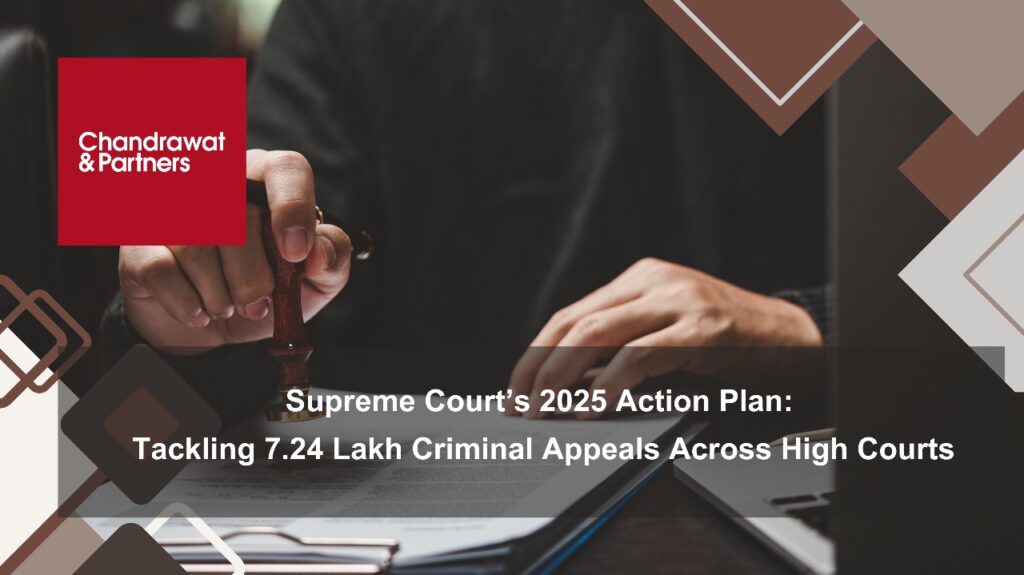Home > Recent Judgements > Supreme Court’s 2025 Action Plan: Tackling 7.24 Lakh Criminal Appeals Across High Courts
May 12, 2025
Supreme Court’s 2025 Action Plan: Tackling 7.24 Lakh Criminal Appeals Across High Courts
In a transformative step to combat India’s growing judicial backlog, the Supreme Court on May 10, 2025, issued a series of strategic recommendations to all High Courts aimed at clearing the staggering 7.24 lakh pending criminal appeals. The directive forms part of a broader national judicial reform agenda and seeks to promote efficiency, transparency, and speedy justice.
Scale of the Problem
As per data presented to the Court, over 724,000 criminal appeals are currently pending across various High Courts, a large number of which involve incarcerated individuals awaiting justice. The sheer volume poses a challenge to the right to a speedy trial and undermines public trust in the justice system.
Key Supreme Court Recommendations
- Digitization of Trial Court Records
- High Courts are urged to formulate specific rules that mandate the digitization and automatic electronic transmission of lower court records once an appeal is filed.
- This move aims to reduce administrative lag and make records accessible for quicker adjudication.
- Appointment of Case Management Registrars
- The Court has advised each High Court to create the post of a Registrar (Court and Case Management).
- These officials would supervise pre-listing preparations, ensure pleadings are complete, and monitor the readiness of cases for hearing.
- AI-Powered Translation Tools
- The Supreme Court’s SUAS (Supreme Court Vidhik Anuvaad Software) was recommended to aid in quick, accurate translations of regional language documents.
- This would accelerate hearings in states with linguistic diversity and reduce translation-related delays.
- Use of Video Conferencing Across Benches
- For High Courts with multiple benches, the Court encouraged the use of video conferencing so that benches with fewer pending cases can support those with heavier workloads.
- This inter-bench collaboration can balance the judicial burden and improve case turnover.
- Prioritisation of Appeals by Incarcerated Individuals
- Courts are expected to fast-track appeals involving under-trial or convicted prisoners, especially where fixed-term sentences are involved.
- The Court reiterated its earlier stand that sentences should generally be suspended during the pendency of appeals, unless there are exceptional circumstances.
Context and Future Implications
This proactive intervention follows months of hearings on prison overcrowding and systemic judicial delay. The recommendations aim to prevent unjust prolonged incarceration due to procedural bottlenecks. They also align with broader judicial reforms centered around technology, access to justice, and human rights.
The apex court’s directive may eventually form the basis of a uniform national case management policy—a long-sought structural reform.
Conclusion
The Supreme Court’s vision is clear: modernize, decentralize, and humanize India’s appellate criminal justice system. If implemented earnestly, these measures could significantly reduce pendency, improve prisoner rights, and restore public confidence in judicial efficiency.
For more information or queries, please email us at
enquiries@chandrawatpartners.com





